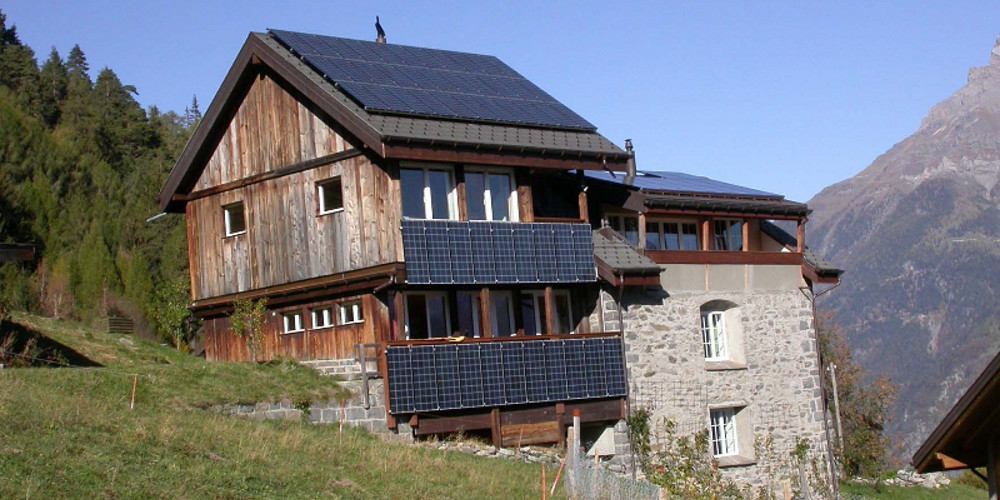According to a new report published by the Paul Scherrer Institute (PSI), a Swiss research centre for natural and engineering sciences, solar is the renewable energy source with the largest potential in Switzerland.
Much of this is due to the fact that the country’s large-scale hydropower plants, which have an electricity production of 32.7 TWh per year, are already largely exhausted . Solar PV currently reaches about 1.1 TWh of power generation. The PSI scientists, however, believe that it may reach between 5.5 and 16 TWh by 2035, and between 11 and 19 TWh by 2050.
For comparison, the Swiss researchers see a potential of just 1.4 to a maximum of 4.3 TWh in 2050 for wind energy, which currently has a share of only 0.1 TWg. The PSI scientists specified that they considered only rooftop PV systems for the investigation of Switzerland’s solar potential. “In contrast to other renewable energies, PV systems are more likely to be accepted, and potential exploitation seems more realistic,” they wrote.
The scientists also believe that PV will prevail ahead of wind in terms of costs. The electricity generation costs for small PV systems with a total output of 10 KW, equivalent to about 15 to 27 euro cents per kilowatt hour (0.18 to 0.31 francs), are still comparatively high (wind energy 11 to 18 euro cents per kWh, gas combined cycle power plants 9 to 11 euro cent, nuclear energy 4 to 11 euro cents, coal-fired power stations abroad 3 to 7 euro cent). The cost of electricity, however, would drop to 7 to 16 euro cents per kWh for small PV systems by 2050, thus almost reaching the price level of utility-scale wind turbines (8 to 13 euro cents per kWh).
For large PV systems with 1 MW of capacity or more, the development of costs looks even rosier, according to forecasts. Accordingly, the current cost of electricity will fall from 7 to 11 euro cents per kWh to 3 to 8 euro cents by 2050. This increases competitiveness compared to Switzerland's dominant hydropower (6 to 26 euro cents) sector.
This content is protected by copyright and may not be reused. If you want to cooperate with us and would like to reuse some of our content, please contact: editors@pv-magazine.com.



2 comments
By submitting this form you agree to pv magazine using your data for the purposes of publishing your comment.
Your personal data will only be disclosed or otherwise transmitted to third parties for the purposes of spam filtering or if this is necessary for technical maintenance of the website. Any other transfer to third parties will not take place unless this is justified on the basis of applicable data protection regulations or if pv magazine is legally obliged to do so.
You may revoke this consent at any time with effect for the future, in which case your personal data will be deleted immediately. Otherwise, your data will be deleted if pv magazine has processed your request or the purpose of data storage is fulfilled.
Further information on data privacy can be found in our Data Protection Policy.